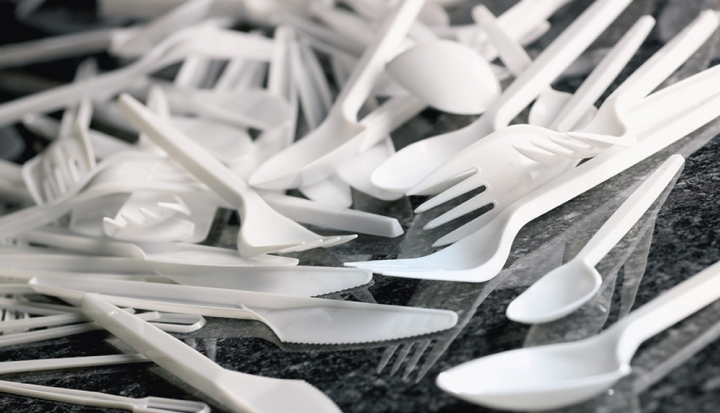Do you ever notice what you don’t see?
Hang with me—I know the question seems strange.
Those of us gifted with the ability to see count on our eyes to alert us to the tangible objects around us: the person approaching on my left, the puddle I’m about to step in, the stoplight that just turned green.
Eyes create images of the current environment. What we see matters.
But what we don’t see is worth observing too.
Recently I went through a 10-day stretch without seeing a single piece of plastic. No plastic plates, no plastic forks, no plastic storage containers—nothing. No plastic. My eyes—and heart—took notice right away.
I joined the kitchen crew at a local pottery kiln firing. For 10 nights, crew members, along with family and friends, convened in the art studio-turned-supper club. Food and fellowship flowed.
So did the suds.
Our crew served and then washed ceramic bowls, plates, and utensils for anywhere from 60 to 260 people each night—and not in an industrial kitchen either. We worked in the studio, scrubbing and rinsing hundreds of dishes over one modest sink. When one set of hands started to prune, we would switch out washers and dryers. Others scooped leftovers into Mason jars and plopped food scraps into a bucket for local chickens.
We left at the end of the night lathered in soapy satisfaction.
Our feat is obviously not a new phenomenon. People have been washing dishes since the cave days. Yet more and more people are trading time at the sink for the convenience of single-use plastic dishware. I’ve attended Sunday coffee hours that produce more plastic waste than we did over 10 days. The experience got me thinking: What would it be like if all Catholic institutions practiced good stewardship?
Some 82 percent of readers who participated in the “Green your parish” reader survey for the November 2019 issue of U.S. Catholic cite sustainability as a Catholic issue—and nearly the same percentage call on their parish to practice greener habits. Protesting plastic is one place to start.
Pope Francis agrees. Over the years he’s preached specifically about the “emergency” of plastics entering the world’s waterways.
“We cannot allow our seas and oceans to be littered by endless fields of floating plastic,” Pope Francis said on the 2018 World Day of Prayer for the Care of Creation. “We need to pray as if everything depended on God’s providence, and work as if everything depended on us.”
The pope is right to be concerned—and call for action.
The plastic problem, not to mention the entire climate crisis, can feel totally overwhelming. How can people of faith respond? Start small. A few months ago I started carrying around reusable camping utensils in my purse as one small way to counter the plastic problem. I’m still shocked by how often I pull them out to avoid using single-use plastic. I also started carrying a coffee mug in my purse on Sundays so I’m prepared for coffee hour. These are two tiny ways I can show respect for the Earth during meal times.
The current plastic crisis begs the question: Do we see the world as a gigantic trash can or as a precious gift from our creator?
Yes, doing dishes takes time and volunteers. Single-use cups and cutlery make cleanup a lot easier for staff already stretched thin. Compostable containers cost a little more.
But isn’t our common home worth the extra effort?
This article also appears in the February 2020 issue of U.S. Catholic (Vol. 85, No. 2, page 10). Click here to subscribe to the magazine.
Image: Flickr.com/MPCA Photos














Add comment